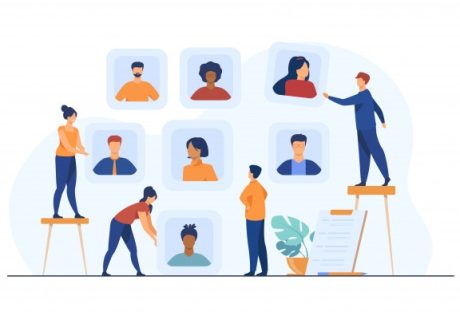Are you a new trader struggling to control your emotions? Do you feel like you’re constantly making bad decisions that cost you money? You’re not alone. Many traders struggle with emotional control, especially in the beginning. In this blog post, we will discuss five tricks that can help you stay calm and how to control emotions while trading. By following these tips, you’ll be able to make more informed decisions and avoid costly mistakes!
Commonest Problems in Day Trading
First, we would like to address the commonest emotional issues a trader can encounter when making a deal.
Fear of Missing Out
FOMO is probably the most difficult emotion to deal with as a trader. FOMO can lead you to make impulsive decisions that are not well thought out. When you see the market moving and you’re worried about missing out on potential profits, it’s important to take a step back and assess the situation before making any decisions.
Greed
Greed is another emotion that can be detrimental to your trading success. When you’re in a trade and the market is moving in your favor, it can be tempting to hold on for more profits. However, this can often lead to giving back your gains or even losing money. It’s important to take profits when they’re available and not get too greedy.
Anger
Anger is another emotion that can lead to impulsive, irrational decisions. If you’re angry at the market for moving against you, it’s important to take a step back and calm down before making any decisions. Once you’re in a trade, it’s also important to not let your emotions affect your exit strategy.
Fear of Failing
Fear of falling can often lead to paralysis by analysis. You may be so afraid of making a mistake that you don’t make any trades at all. This can be costly, as you miss out on potential profits. It’s important to remember that everyone makes mistakes; the key is to learn from them and move on.
Lack of Discipline
Lack of discipline can often lead to overtrading. When you’re not following a set plan or strategy, it’s easy to make impulsive decisions that are not well thought out. This can lead to losses, as you’re not sticking to a proven system. It’s important to have a trading plan and stick to it.
What Tricks Should You Use?
Now, let’s take a look at the tricks we’ve prepared for you.
1. Take Frequent Breaks
One of the most important things you can do to stay calm while trading is to take frequent breaks. Sitting in front of your computer for hours on end will only increase your stress levels and make it more difficult to make rational decisions. Get up and walk around every few hours, or take a break to meditate or do some deep breathing exercises. You’ll come back to your trading refreshed and with a clear head.
2. Set Realistic Expectations
If you’re constantly expecting to make huge profits on every trade, you’re setting yourself up for disappointment. It’s important to have realistic expectations when trading, as this will help you stay level-headed when things don’t go according to plan. Accept that you will have losing trades, and don’t beat yourself up over them. Focus on the long-term goal of becoming a profitable trader, and remember that it takes time to achieve success.
3. Create a Trading Plan
Another way to stay calm and in control while trading is to create a detailed trading plan. This plan should include your entry and exit points, your stop-losses, and your profit targets. By having a plan in place, you’ll know exactly what you need to do to make a successful trade. This will help to eliminate any guesswork or emotion from the equation.
4. Stick to Your Strategy
Once you have a trading strategy in place, it’s important to stick to it. This can be difficult, especially when you’re feeling emotional about a trade. However, if you’ve done your research and you’re confident in your strategy, trust it and don’t second-guess yourself. It’s also important to remember that no trading strategy is perfect, and there will always be some risk involved.
5. Manage Your Risk
Finally, one of the most important things you can do to stay calm while trading is to manage your risk. This means only risking a small portion of your account on each trade, and using stop-losses to limit your losses. By managing your risk, you’ll be able to stay in the game even if you have a few losing trades.
In Conclusion
Emotional control is essential for any trader, but it can be especially difficult for new traders to master. By following the tips in this blog post, you’ll be on your way to becoming a more successful and profitable trader! Remember to take breaks, set realistic expectations, create a trading plan, stick to your strategy, and manage your risk. With these tricks, you’ll be able to control your emotions and make more informed decisions while trading.

























